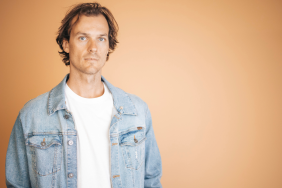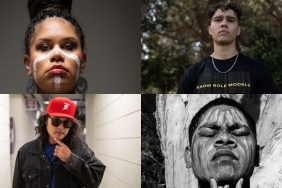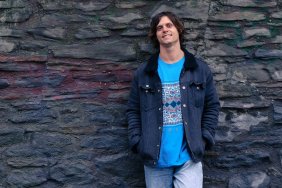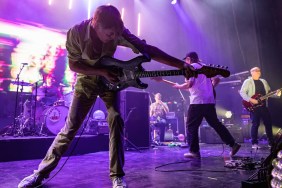Ben Sollee will soon be in Australia to perform at the Woodford Folk Festival, followed by a national headlining tour throughout the month of January with versatile percussionist Jordon Ellis.
Having released his fourth studio album Half Made Man in September, the Kentuckian virtuoso continues to redefine the role of the Cello in contemporary music. However, it’s more than just the singer/songwriter’s incorporation of a classic instrument into his folk/soul/bluegrass sound that makes Sollee such an intriguing artist.
When geographically and financially possible, Sollee engages in ‘bicycle tours’: a concept that sees Sollee and his bands cycle their way from gig to gig. Sollee even encourages his fans to participate in peddle power through various incentives. On top of this, Sollee is willing to take a stand on social and political issues, using his notoriety to champion the causes he feels passionate about.
A fascinating musician onstage and thought-provoking man off it, Sollee will be a must-see act when he touches down in Australia.
Music Feeds: In previous interviews you’ve stated that musicians need to engage their audience in a variety of ways. Why isn’t simply playing music enough anymore?
Ben Sollee: With today’s technology it is possible for someone to consume an artist’s entire catalogue on a whim. And so the opportunity is there for artists and musicians to tell a broader story. It’s essential even for us performers to dig deeper and share it with our audience through social media, collaborations with non-profits and other business, artisan made goods and so on.
MF: Although music as an art form has the ability to bring people together, the industry that surrounds music is often intent on separating artists from the audience in order to inflate the marketability and stature of musicians, (and in turn profit from their skillset). By all reports you seem to reject this model. How do you bridge the gap between yourself and your fans?
BS: Well, for starters, I try to avoid a gap between me and the audience. By taking a very personal, sincere approach to my art and my commerce I find that fans feel pretty involved. I mean, I respect the power of the stage, but music is a social art form. It was born out of communities not the other way around. So, I try to use my gift with music to be involved with the various communities I travel through.
MF: Author Daniel J Levitin points out that in non-industrialised cultures music is the fabric of everyday life and there is no specialised class that distinguishes music performers from music listeners. Is it this pre-industry, all-inclusive ideologically towards music that you attempt to encompass in your shows?
BS: To some extent I would say this is true of my shows; however, the stage is inhibiting by inserting itself between the performer and the audience. I try to overcome it with story, song, and other types of engagement. But, if I truly reduced music down to its musicological roots as a social language, there would not be a way for me to make a living as a performer.
MF: I know you have covered this in plenty of previous interviews, but for Australian audiences would you please explain the concept behind your bicycle tours?
BS: When we, as a band, ‘ditch the van’ for touring by bicycle we are not trying to be ‘green’ or even sustainable. We are focused on using the limitation of the bicycle to slow our pace so that we can engage with the community more closely. In truth, it was a response to the fast-paced life of touring I lead with other bands and earlier on in my solo career.
MF: Your bicycle tours slow the pace of touring and thus limit the potential for profit. How do you stay the course and follow through with a healthier form of touring rather than succumbing to financial pressures?
BS: A very insightful question… Maybe one day I will make enough money to do all of my touring by bicycle. But, with a wife, son, and a roster of employees, I must balance the two-wheeled ambitions with real business. So, most of the year, I work like most other musicians putting on shows with promoters in bigger venues… travelling around in the van. At the moment, we strive to dedicate about a third of our touring each to be by bicycle.
MF: Australia is a little too spread out geographically for one of your bicycle tours. But will you be encouraging Australian fans to ride, walk or use public transport to commute to your gigs where possible?
BS: I always encourage folks to ride, bike, or walk. In the States we incentivise our audience with merchandise vouchers, and I hope in the future I can do the same in Australia.
MF: In the lead-up to the recently passed Presidential Election you ascended the steps of the Lincoln Memorial and played for passersby in an effort to encourage people to vote. Was that as nerve-racking as it appears to be in the footage?
BS: I certainly had a knot in my stomach. But, I felt like it was a fairly serene way to let folks know that individuals can make a fuss and be heard. I’m just glad the park ranger didn’t arrest me.
MF: Aside from the creative aspect, was it the chance to engage people in social and political discussion that attracted you to a career in music?
BS: Honestly, as an extravert I find myself drawn to social aspects of performing for an audience. I feel that I can be myself amongst the musicians and fans, and that means that the things I care about become topics in my music. And so it was never my ambition to use any stage [as] a platform. But, it has certainly developed into that for me. I think it is for the better seeing that mainstream media has a terribly difficult time entertaining an honest discussion.
MF: The media relish in the ‘novelty’ that you play the cello and make it the principle instrument of your music. But for you is there anything unusual about the cello or is it simply the instrument you have the strongest affinity with?
BS: The cello is an extremely versatile instrument and has been, and remains so: it’s the Swiss army knife of the orchestra. Its massive melodic range and harmonic options paired with the texture and rhythm it can create make it a pretty useful songwriting tool. And, for my money, if I’m going to bring only one instrument with me on the road, it’s got to be a cello.












